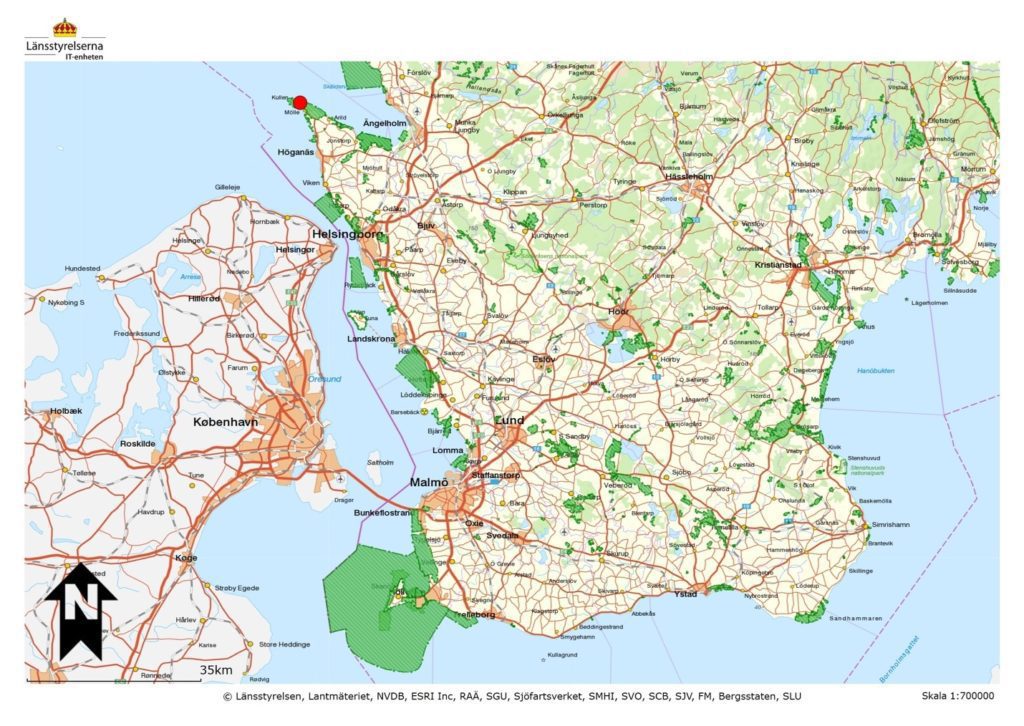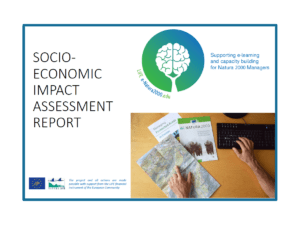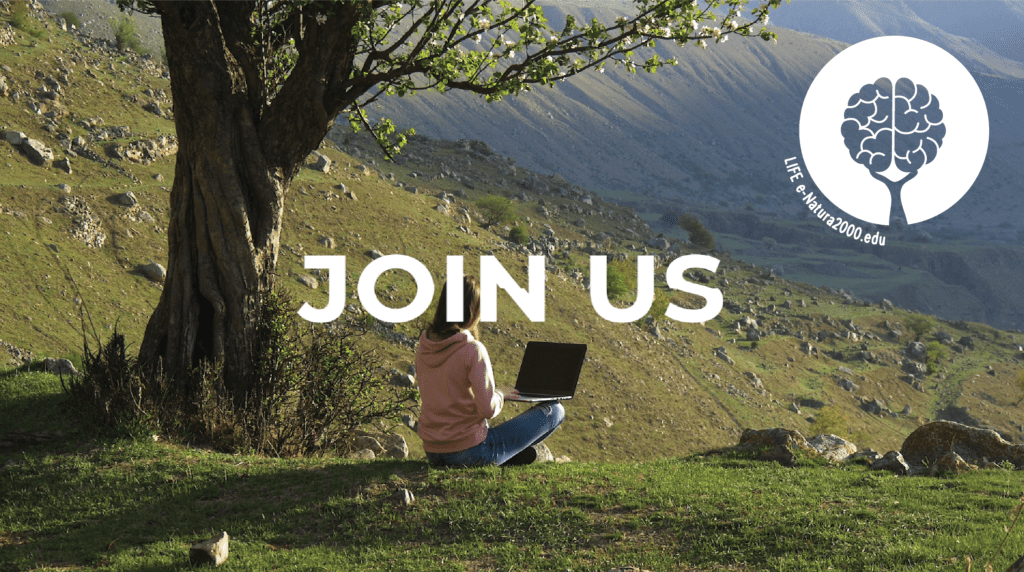LIFE e-Natura2000.edu: Socio-economic impact assessment report
The LIFE Preparatory project, LIFE e-Natura 2000.edu gathered participants from across the EU in order to find the best solutions for existing training structures and future capacity building projects for Natura 2000 managers. The Socio-economic impact assessment report, aims to demonstrate the impacts of the project whilst showing why long-term, tailor-made capacity building programmes are crucial for the improvement of the effectiveness of Natura 2000 management and its positive achievements on the ground.
Project from a socio-economic angle
The LIFE.edu project aimed to actively involve site managers, private landowners and rangers, whether they are from park authorities or non-governmental organisations, to improve the knowledge, skills and attributes they need as Natura 2000 managers.
This report provides direct insight into partners’ and participants’ project-related experiences and describes the relationship between the socio-economic impacts of competence based management capacities and LIFE e-Natura2000.edu project outcomes.
Positive impacts of the project
This project’s beneficial impacts are represented in several ways:
- 50% of participants in the project training actions will launch new activities linked to Natura 2000 management capacities as a direct result of the project.
- Training activities & innovative tools have proved to be very useful, easily replicable and up-scalable
- Project partners have or will modify their training frameworks to incorporate the project tools and outcomes.
- Communication and information about Natura 2000 has and will continue to improve from Kullaberg Nature Reserve’s participation as a project partner.
Training activities & innovative tools
Online learning has proved to be a very useful experience and an effective way of reaching greater numbers of participants. Additionally, six months after the end of the courses, 96% of participants of the online courses started to apply the learning (or would soon) to their work context. This demonstrates that the project’s competence-based approach is, not only, immediately applicable, but it is replicable in the short term for individuals and also in the medium term for teams and organisations.
Trainees said:
All the digital documents, presentations, references, videos have been very useful and I am already using them as a working material for other projects, teaching, and sharing.
Sowing seeds for the future: creating a European capacity building network
The Kullaberg Nature Reserve experience

Kullaberg Nature Reserve
Kullaberg, a Nature Reserve located in the northwest corner of Scania province, and the first Swedish protected area to achieve the European Charter of Sustainable Tourism has been a testing ground for most of the LIFE e-Natura2000.edu project actions.
This report delivers many useful insights from their experience of participating in the project, as well as all the positive impacts of LIFE.edu has brought to them on an individual, management body and the territorial level.
Kullaberg managers said:
I am using some tools introduced in EUROPARC online course: ‘Competent Inclusive Communication for Natura 2000 Managers’ in my daily work.
Following participation in the online course offered by EUROPARC within LIFE.edu, Kullaberg Nature Reserve staff reached out to the Swedish University of Agricultural Sciences (SLU) aiming to explore opportunities for collaboration in order to start implementation of Healthy parks, Healthy People Programme in Kullaberg Nature Reserve. Upon pitching the idea to SLU researchers, Kullaberg has drafted a pilot project proposal and is currently working on securing external funding to implement the initiative (as of June 2021).
The main objective is to develop (and test) a new model promoting outdoor and nature-related activities among healthcare professionals and social care workers in need of mental and physical recovery due to the increased workload caused by the COVID-19 pandemic. Furthermore, the aim is to build a collaborative network of stakeholders to establish an innovative set of services for promoting public health.
Apart from Kullaberg, many other partners have recognised the potential for further development that LIFE.edu inspired.
The project has helped to develop and improve training and educational programmes run by FUNGOBE for protected area managers, and has been influential in the acquisition and refinement of new online teaching capabilities.
The University of Padova has recently launched a curricular course in Natura 2000 management, taught by the scientific coordinator of the project for TESAF. It is very innovative and almost unique in the current Italian university-level educational offer.
All activities of the LIFE e-Natura2000.edu project had and will have an important impact on the preparation and methods used in the specific module Natura 2000 management.
Significance of the project
From a socio-economic perspective, the project has had a clear impact at various levels:
At individual level
- better employment perspectives
- improvement of communication skills
- expansion of job networks
- increase of personal motivation
At organisational level
- project’s partners incorporated the project’s methodologies and tools into their training frameworks to improve their results with lower execution costs
- their networks have been extended
- their access to Natura 2000 info is better and faster, which results, among others, in better access to new funding opportunities
At site level
- increase in social acceptance of Natura 2000 conservation policies
- access to new funding green job opportunities for local communities
More details and positive effects of the LIFE.edu project can be found in the full document.
Download the Socio-Economic Impact Assessment Report:
Click on the image to download the full document


Download the PDF version of the document here:
Socio-economic impact assessment report
Download the PowerPoint version of the document here:

